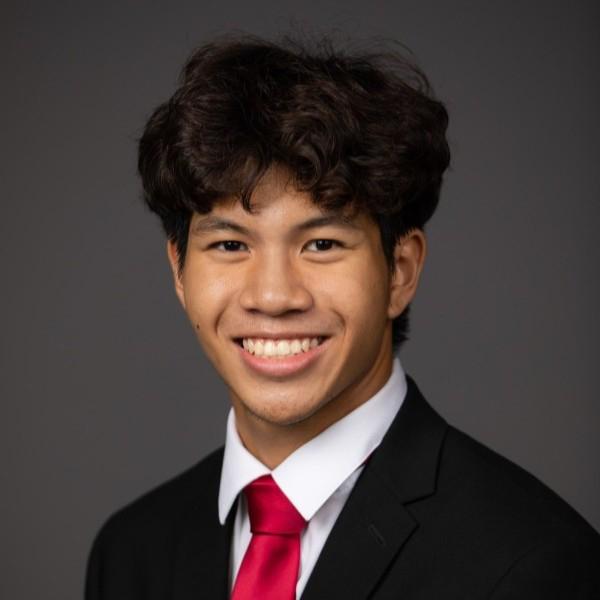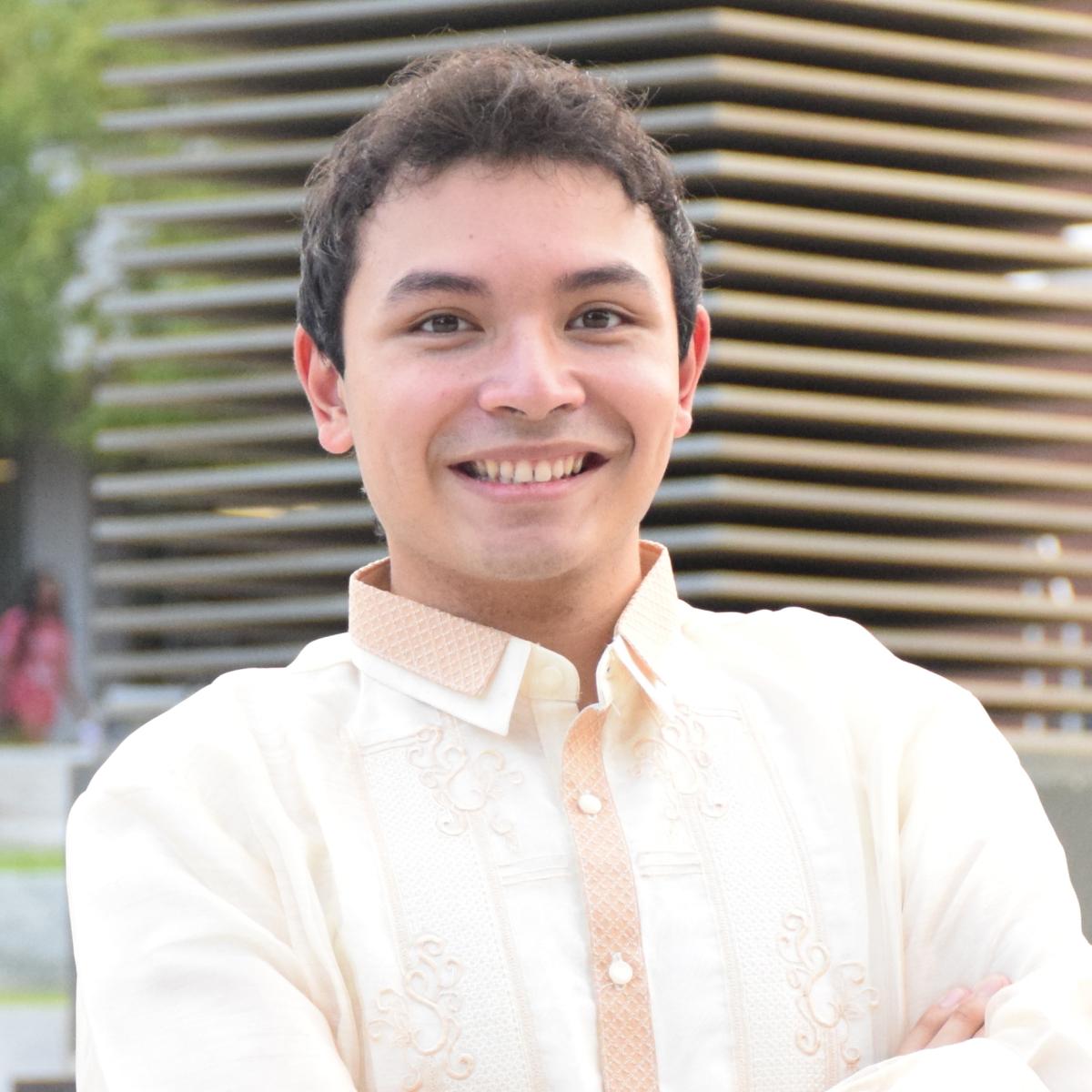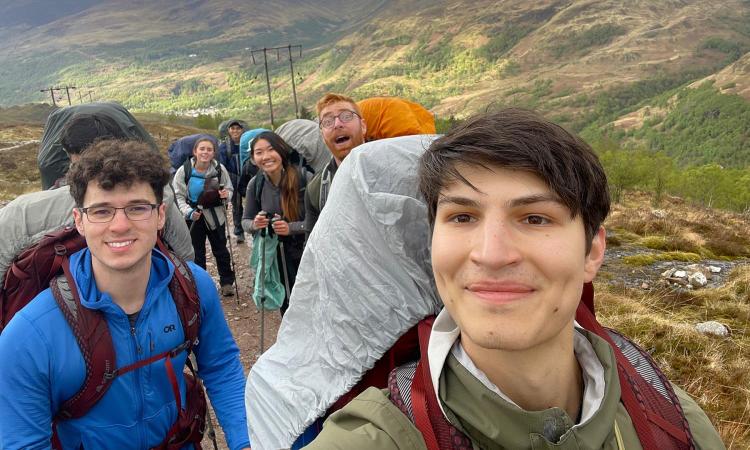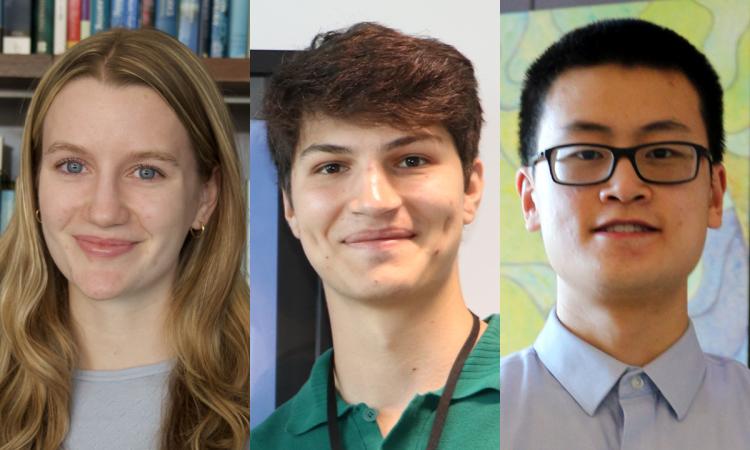Charles Hong and Ethan Ray were selected for their potential to become the nation’s next generation of research leaders.
(text and background only visible when logged in)
One of the nation’s most prestigious scholarships for undergraduates has once again selected two Georgia Tech engineering students for its new class.
Ethan Ray and Charles Hong have been named Goldwater Scholars for their research and leadership in the Tech community. Ray is a third-year materials science and engineering student, and Hong is in his third year of biomedical engineering studies.
Ray and Hong are among just 64 students studying engineering and materials nationwide selected for the Goldwater Scholarship this year. It pays for tuition, fees, books, and room and board for up to two years.
The scholarship was established by Congress in 1986 in honor of former Sen. Barry Goldwater and ensure the United States has a reliable pipeline of highly qualified professions in science, mathematics, and engineering. Each institution is allowed to nominate only five students each year.
(text and background only visible when logged in)
Surgical Robots
During his biomedical engineering studies, Hong has worked on medical imaging and tissue assessment research in Professor Jun Ueda’s lab in the George W. Woodruff School of Mechanical Engineering. And last summer, he contributed to a project at the University of Houston using imaging and robots to remove blood clots.
“I want to ultimately conduct research on imaging and moving surgical robots within the body, and I think both of these experiences have driven me toward this path,” Hong said, adding that he’s looking forward to tapping into the Goldwater Scholars community for mentoring and advice as he explores graduate schools in the fall.
Hong, who also is pursuing a minor in robotics, said he’s surprised and grateful to be a member of the 2024 class. It’s a case of persistence paying off after he didn’t make it far in the nomination process last year.
“I knew I wanted to pursue a Ph.D., and I believed the application process would help me learn more about myself and how to tell my research story,” he said. “I wanted to redefine my story with all my new experiences over the last year and hopefully make my application more cohesive.”

Nanomaterials

Ray gathered his two best friends before he opened his Goldwater decision. When it was good news, he was able to celebrate with the two people he said have been instrumental in shaping his college experience.
“It felt surreal to know that my contributions and potential in academia were being recognized, and it gave me the push I needed to truly see that I belong in the research field,” Ray said. “Receiving the Goldwater Scholarship will sharpen my research focus and bolster my commitment to improving the human condition through science. The opportunity to connect with exceptional young scientists will foster collaborations and inspire further innovation.”
Like Hong, Ray has his eyes on a Ph.D. He wants to teach and conduct research at a university. His focus will be functional nanomaterials and nanostructures that can expand access to technology in underserved communities around the world.
Ray has worked on projects synthesizing thin film electronic materials with Hightower Professor Eric Vogel in the School of Materials Science and Engineering. He also conducted research manipulating light propagation with nano-scale optical materials and structures at Vanderbilt University.
“These research experiences have given me invaluable practice thinking like a researcher, carrying out experiments, and collaborating with amazing scientists,” Ray said.
Related Content

ME’s Velin Kojouharov Wins Tech’s Top Honor for Graduating Students
The Love Family Foundation Award annually recognizes one undergrad with the most outstanding scholastic record.

Meet the College’s Newest Goldwater Scholars
Maeve Janecka, Venny Kojouharov, and Dawei Liu are among five Georgia Tech students selected in 2023 for their potential to become the nation’s next generation of research leaders.